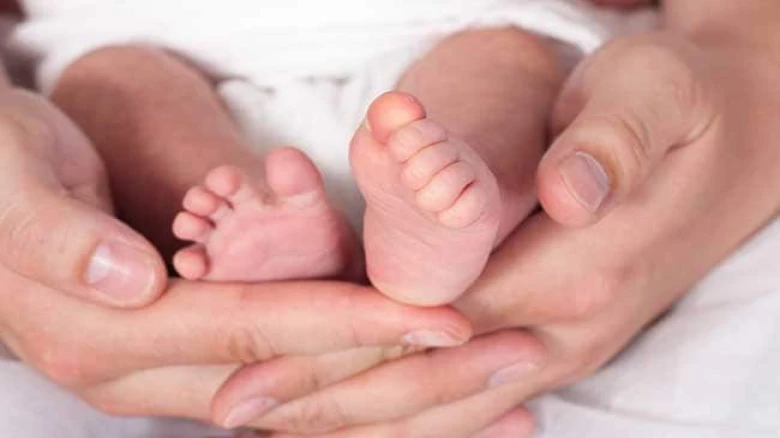Regional

India leads a list of ten nations that together account for 60% of global maternal deaths, stillbirths, and newborn deaths and...
Digital Desk: India leads a list of ten nations that together account for 60% of global maternal deaths, stillbirths, and newborn deaths and 51% of live births globally, a report released by the United Nations said. The latest published estimates in the WHO, UNICEF, and UNFPA progress tracking report were released on Tuesday during the ongoing 'International Maternal Newborn Health Conference' (IMNHC 2023). It reveals that there were a combined 4.5 million deaths, including 0.29 million maternal deaths, 1.9 million stillbirths, and 2.3 million newborn deaths in 2020-2021.
Sub-Saharan Africa and Central and Southern Asia have the highest number of deaths, however, there is variation across all areas in the rate at which countries are making progress towards the global 2030 targets.
The four-day conference, organized by the South African government and AlignMNH – a worldwide effort hosted by the Bill and Melinda Gates Foundation in collaboration with the United States Agency for International Development (USAID), began on May 8.
As per the first-ever joint Every Newborn Action Plan (ENAP) and Ending Preventable Maternal Mortality (EPMM) progress tracking report, global progress in reducing deaths of pregnant women, mothers, and babies has been stagnant for the past eight years due to declining investments in maternal and newborn health.
"Pregnant women and newborns continue to die at unacceptable rates around the world, and the coronavirus pandemic has made it even more difficult to provide them with the health care they require," said Dr Anshu Banerjee, Director of Maternal, Newborn, Child, and Adolescent Health and Ageing at the World Health Organisation (WHO).
"We must do things differently if we want to see different results. More and better investments in primary health care are required to ensure that every woman and infant, regardless of where they belong, has the best chance of health and survival," Banerjee added.
Dr. Allisyn Moran, Maternal Health Lead at WHO, told the media at IMNHC that maternal, newborn, and stillbirth mortality have all decreased since 2000, but there has been a major standstill in maternal mortality and stillbirth reduction since 2015.
Also Read : Woman experiences 'Loud and Full Body Orgasm' at Music Concert; Perplexed Audience calls it 'Beautiful'
"As a community, we must work hard to accelerate progress in order to meet the SDG targets by 2030. To get there, we must adopt life-saving treatments for quality prenatal, intrapartum, and postnatal care for mothers and newborns, as well as prevent stillbirths," Moran said.
"We have coverage goals for antenatal, skilled birth assistant, and postnatal care through 2025. We know that interventions must be delivered alongside quality and respectful care," Moran added.
In 2020, India had 7,88,000 maternity, stillbirth, and neonatal deaths, out of a total of 4.5 million deaths globally. The country also accounts for 17% of global live births, which may be contributing to the high number of maternal deaths, stillbirths, and neonatal death.
It is followed by Nigeria, Pakistan, the Democratic Republic of the Congo, Ethiopia, Bangladesh, and China in terms of maternal and newborn deaths.
Trend data show that global progress in reducing maternal and infant deaths and stillbirths has stalled over the last decade. Gains between 2000 and 2010 were faster than in the years since 2010.
It is important to identify the causes of the slowdown and take appropriate measures to solve them.
"Global challenges such as the COVID-19 pandemic, climate change, conflicts, and other emergency situations, as well as cost of living increases within countries, have the possibility of causing further slow progress in this decade, necessitating greater urgency and investment in maternal and newborn health targets," the report said.
As is too often the case, vulnerability, anxiety, and loss are not spread equally over the world, said Steven Lauwerier, UNICEF Director of Health. "Since the COVID-19 pandemic, babies, children, and women who were already vulnerable to threats to their well-being, particularly those living in fragile countries and emergencies, have borne the brunt of decreased spending and efforts on providing quality and accessible healthcare," he said.
Delays in funding and underinvestment in basic health care can have a devastating impact on survival prospects, the report noted.
In the worst-affected countries in Sub-Saharan Africa, Central and Southern Asia, and the Middle East, fewer than 60% of women obtain even four of the WHO's recommended eight antenatal checks, the report said.
"We have a silent emergency, and we must change the future. This analysis indicates that we must make significant improvements if we want to avoid maternal deaths, neonatal deaths, and stillbirths, as well as morbidity in mothers and newborns. We must prioritize both care quality and data. "We need more information, better data, and data from different levels to gather more information," said Dr. Willibald Zeck, UNFPA's Chief of Sexual and Reproductive Health and Rights.
According to the agencies, in order to boost survival rates, mothers and babies must have access to quality accessible healthcare before, during, and after childbirth, as well as family planning services. Along with vital medicines and supplies, potable water, and consistent electricity, more skilled and motivated health professionals, particularly midwives, are required.
The research also emphasized that initiatives should focus on the poorest women and those in vulnerable situations, who are most likely to miss out on lifesaving medication, including vital subnational planning and funding.
"Improving mother and newborn health requires addressing detrimental gender stereotypes, biases, and disparities," it stated.
Leave A Comment